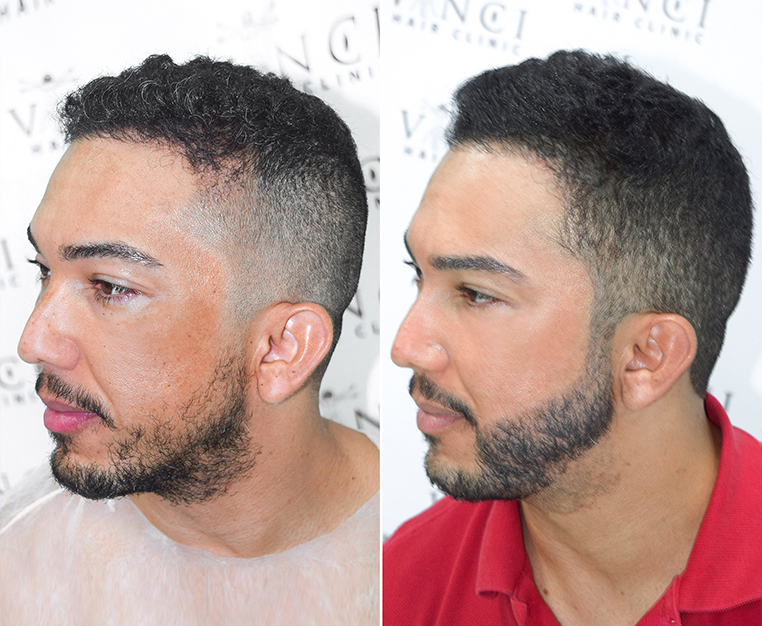If you have textured hair but prefer wearing it straight, hair relaxers provide a convenient way to achieve silky, frizz-free straight locks. That’s great news for those who find that, more often than not, a flat iron just doesn’t do the job. Moreover, temporary straightening doesn’t always last as long as you want, especially on hot, muggy days, while constantly applying direct heat to your hair isn’t good for your mane.
However, as with any hair procedure, hair relaxers are not for everyone. You need to do your research first to determine if this technique will straighten and smooth your wavy hair without any adverse consequences. Luckily for you, this guide will tell you what you need to know about hair relaxers!
What Is A Hair Relaxer?
Hair relaxers are creams or lotions containing chemicals that stylists apply to your natural hair for a sleek, straightened appearance. These chemical straighteners penetrate the cortex layers of your hair shaft and cuticles. They break the disulphide bonds within your strands, preventing them from providing shape and texture to your hair. A neutralising agent stops the reaction and closes the broken bonds into a new configuration to manipulate your hair, setting it into the shape you want.
Hair relaxers aren’t new. They have been around since the early 1900s and are a popular styling procedure among African American women. Despite some unfavourable side effects, hair relaxers are an effective way to straighten hair. They deliver quick results that can last for weeks or even months.
Potential Risks After Relaxing Your Hair
Like any chemical process, hair relaxers can damage your hair. Since you need this chemical process to change your hair texture, you can’t expect your strands to remain unscathed.
The strength of chemical relaxers can cause a host of problems, including hair thinning, dryness, brittleness and breakage. It’s best, therefore, to look for a relaxer specifically formulated for sensitive scalps to reduce the harsh effects of the chemical.
Are You A Suitable Candidate For Hair Relaxing?
If you’ve just recently dyed your hair, you should wait until it grows out before you consider a relaxer. That’s because the combination of peroxide in hair colour and lye in relaxers can result in severe damage to both your scalp and hair. In addition, you shouldn’t use hair relaxers on a damaged scalp or unhealthy hair that’s already brittle and prone to damage.
You should also never leave a hair relaxer in your hair for so long that you feel burning or tingling on your scalp.
A suitable candidate for a hair relaxer is someone with a scalp and strands healthy and strong enough to withstand harsh chemical processing. If that sounds like you, then getting a relaxer could be a great idea. If you’re in any doubt, consult with your hairstylist to get a second opinion.
Caring For Your Relaxed Hair: 3 Maintenance Tips
When you choose to relax your hair, you’re also exposing your hair and scalp to potential problems. That doesn’t mean you have to give up on the procedure altogether. By following these smart tips, you can enjoy your gorgeous straight hair without suffering from hair and scalp issues.
Regular Conditioning
Hair relaxers strip away your hair’s natural oils during the straightening process, so replacing that moisture and keeping your strands hydrated is essential. Use a good-quality, non-greasy formula to maintain proper moisture levels in your hair after washing with a sulphate-free shampoo. Weekly deep conditioning is another way to keep your relaxed hair moisturised and give your strands an extra dose of hydration.
Avoid Heat
Heat can cause breakage and split ends, especially on chemically-treated hair. While heat styling tools are undeniably convenient, excessive use of them will eventually lead to damage. Limit your use of them when possible and always use a heat protectant or a low heat setting.
Wrap It At Night
If you’re looking to protect your delicate tresses while sleeping, wearing a silk hair wrap is something to consider. Not only does it stop your hair from becoming tangled, but it also helps control the natural oils produced in your hair. Wrapping your hair at night helps control the movement of those oils and ensures they’re distributed evenly throughout your strands.
Conclusion
Although hair relaxers provide a brilliant way to add shine and straighten your hair, they can leave your strands in a more vulnerable state. Don’t feel intimidated by this beauty procedure, however, as there are various ways to keep your relaxed hair healthy and smooth. Talk to your stylist before going ahead with it to make sure your hair is right for the treatment.
If you’re experiencing any hair loss or thinning and feel you could benefit from some professional advice, Vinci Hair Clinic can help. Book a free, no-obligation consultation with us today and start your journey to better hair!





